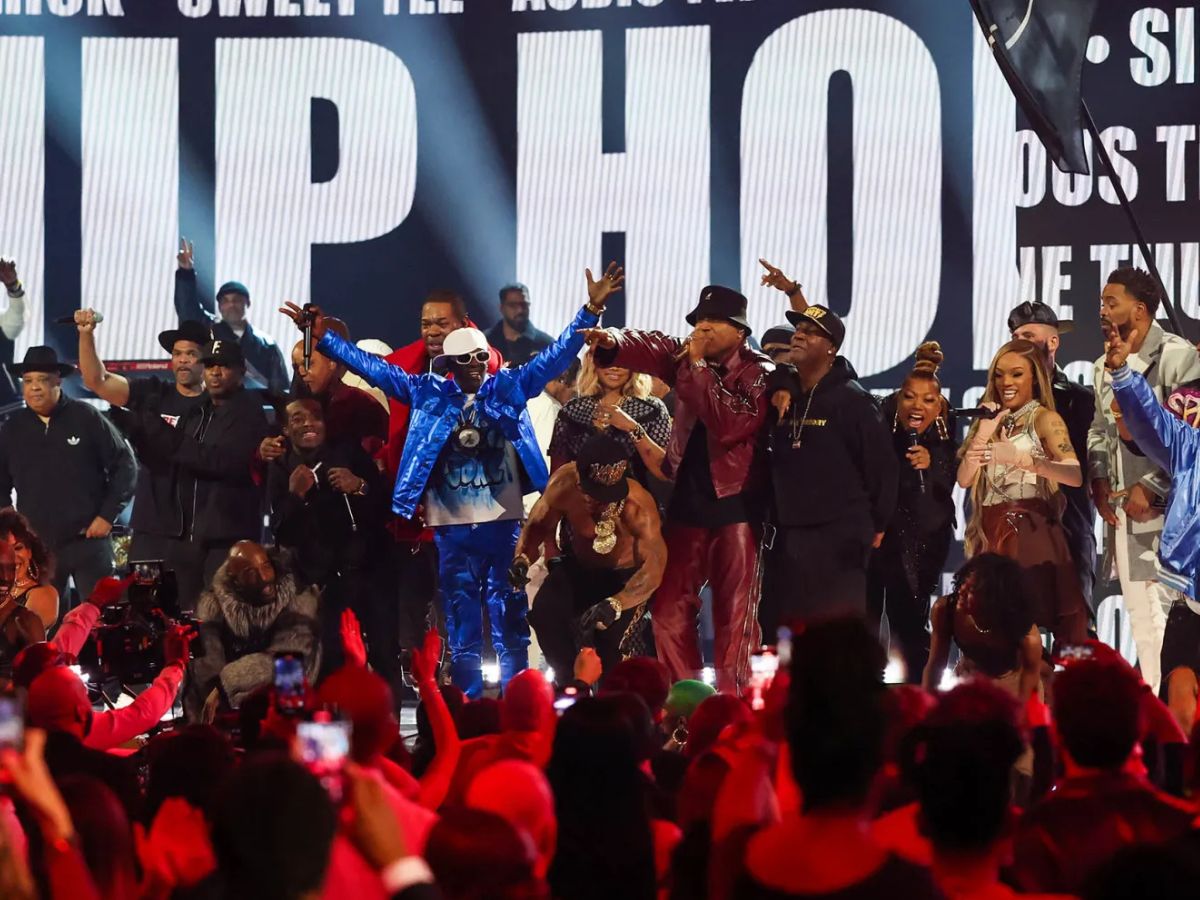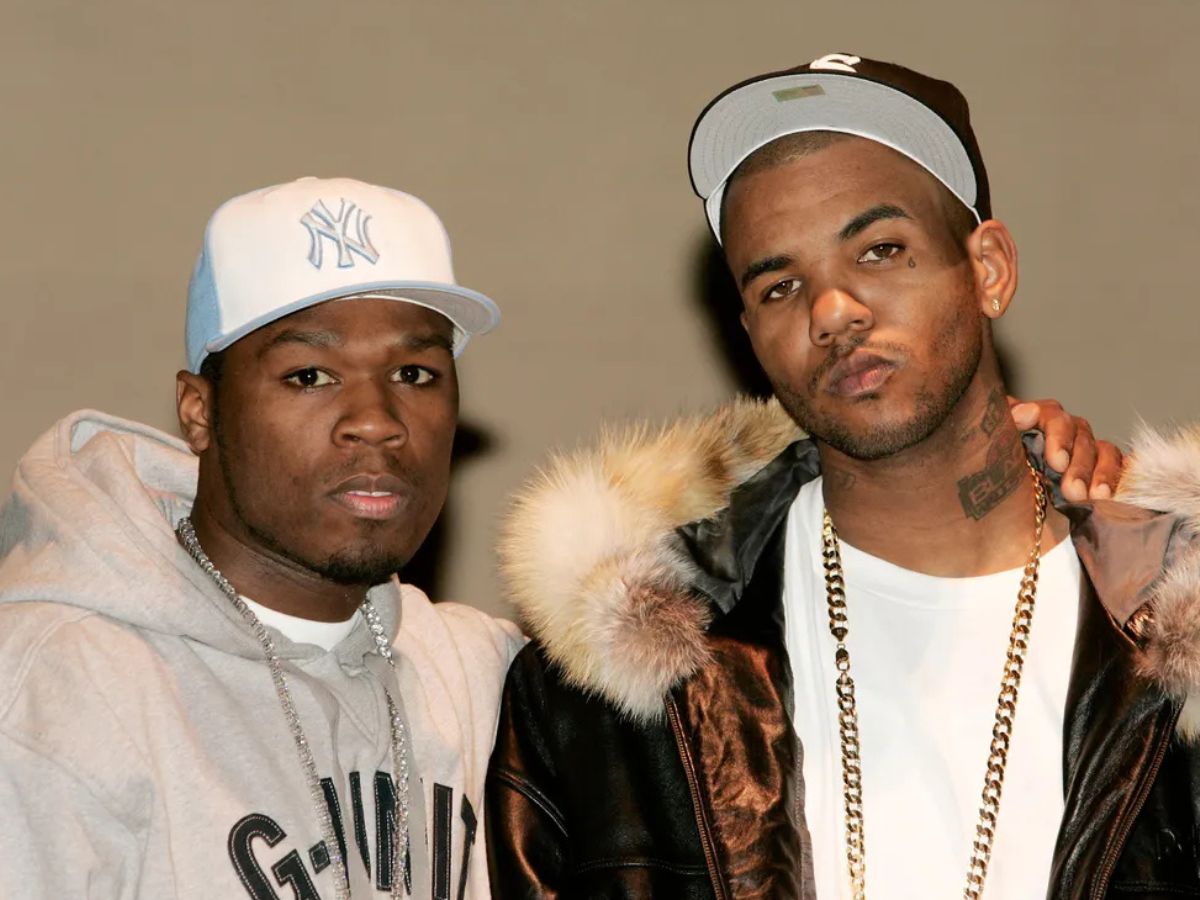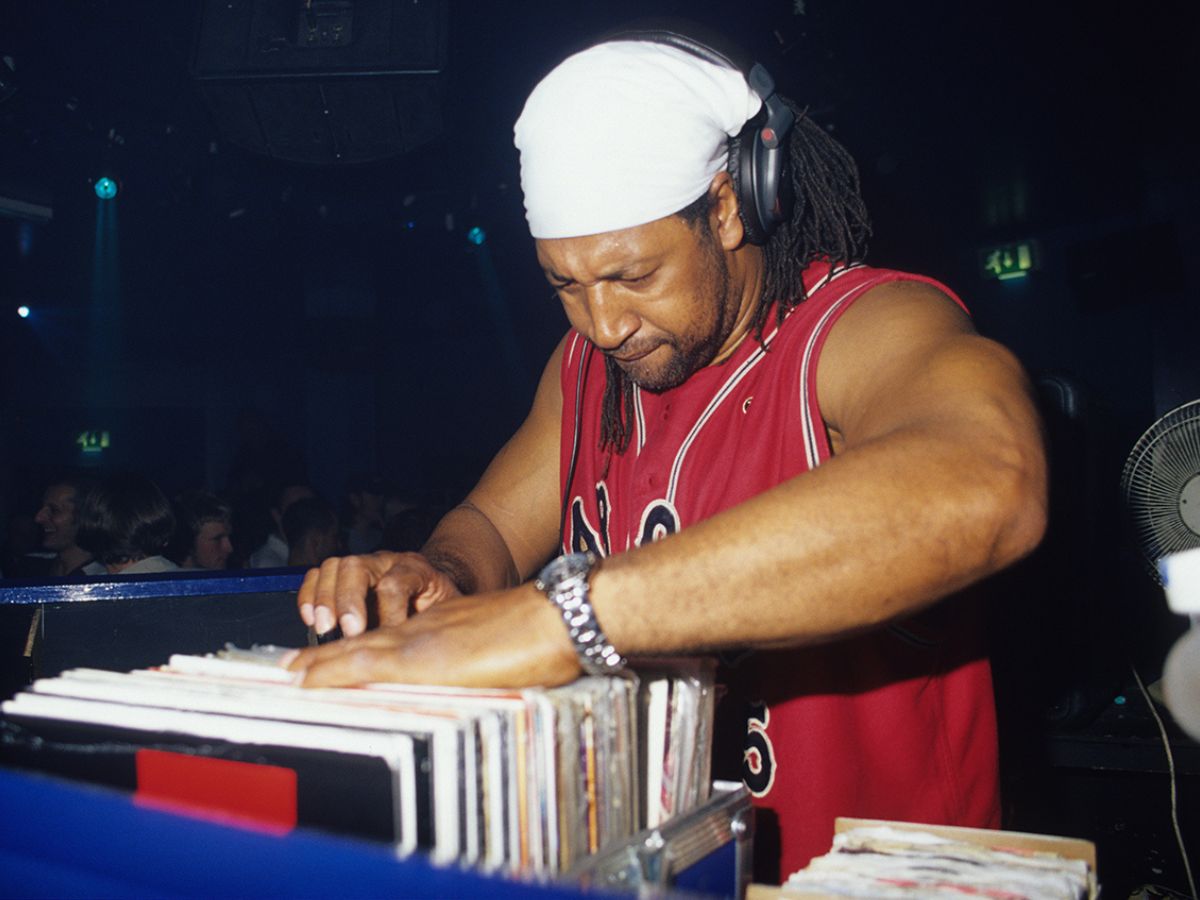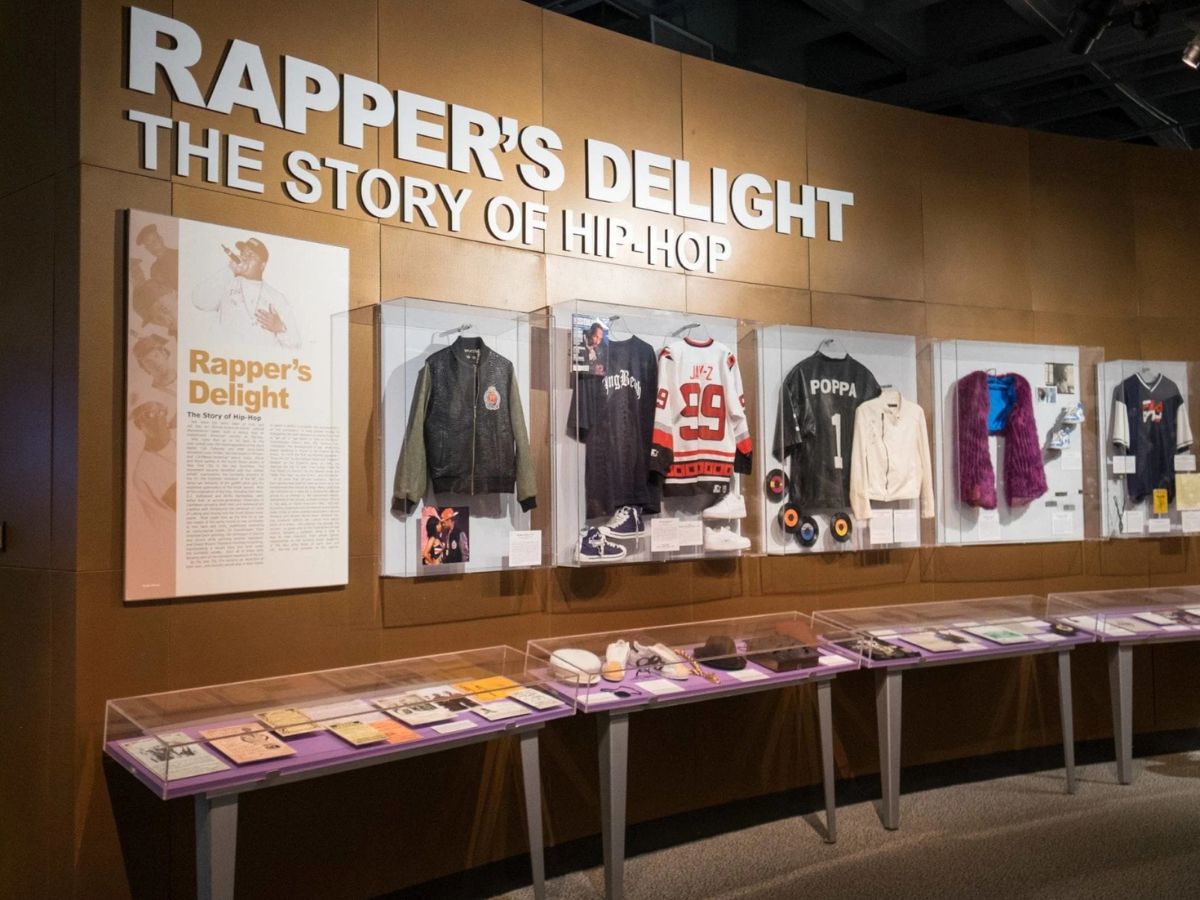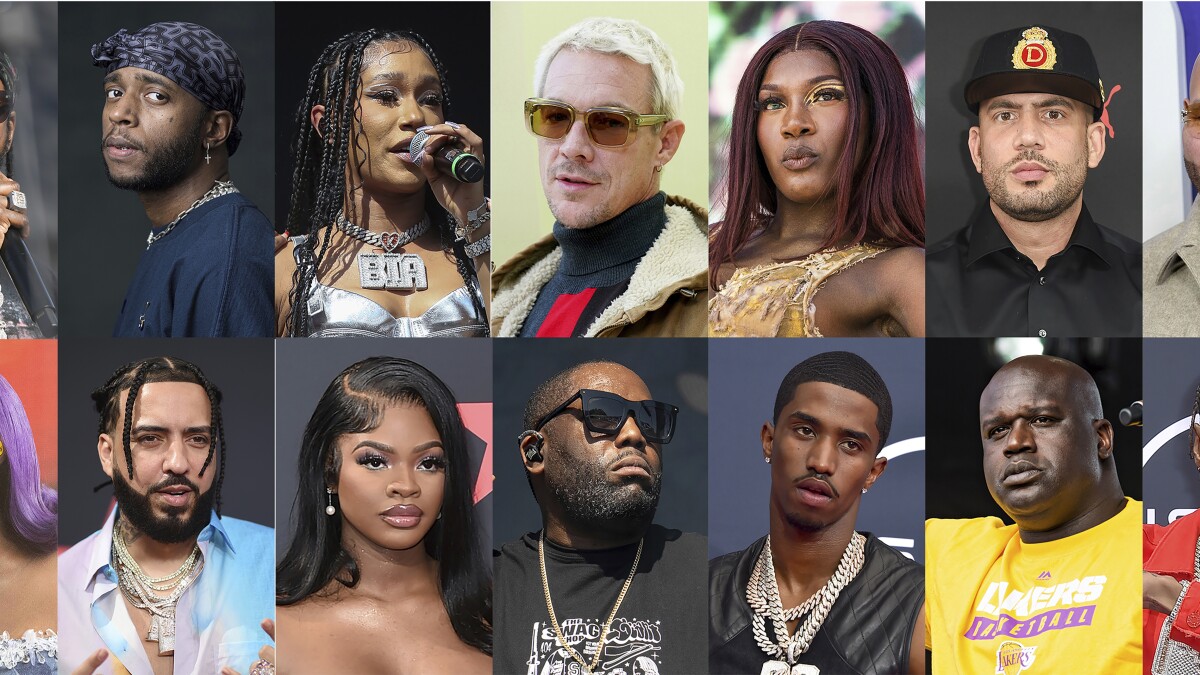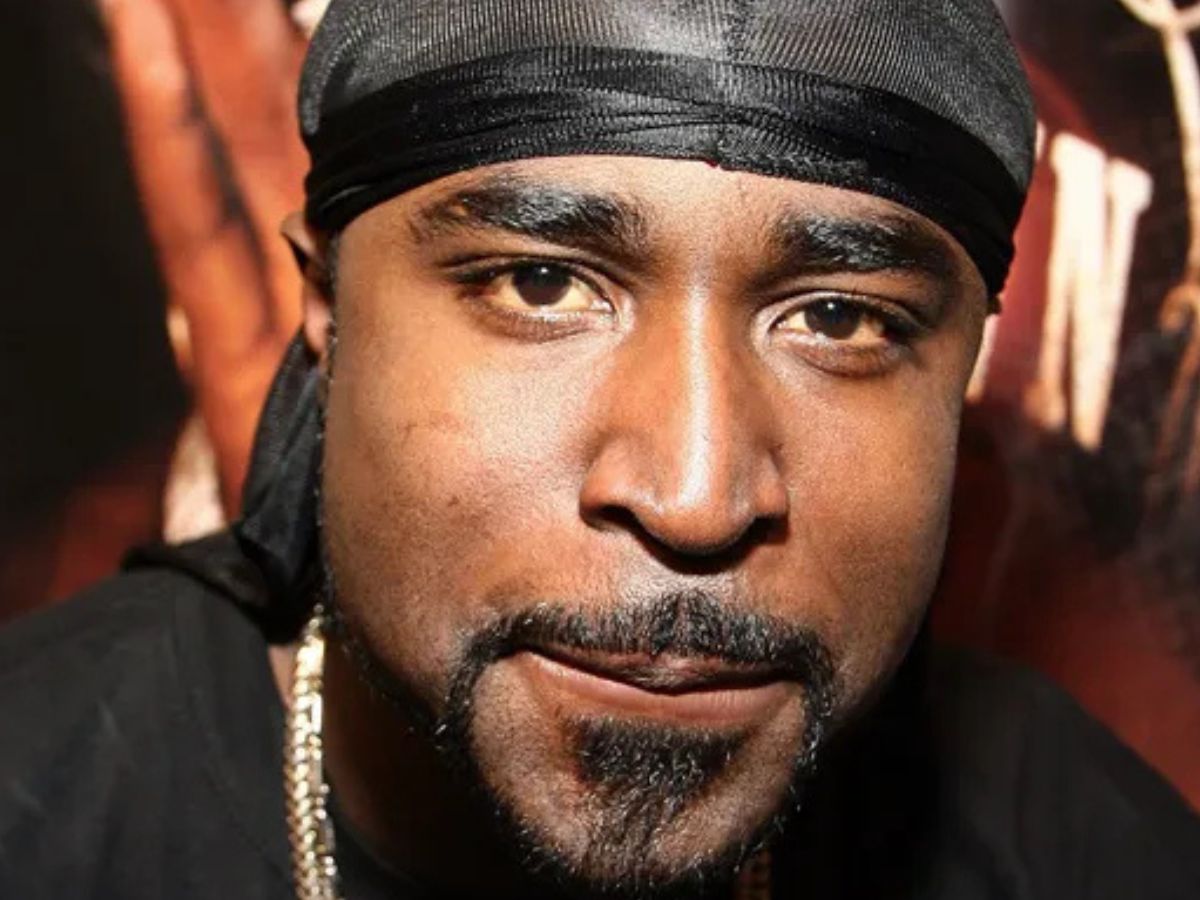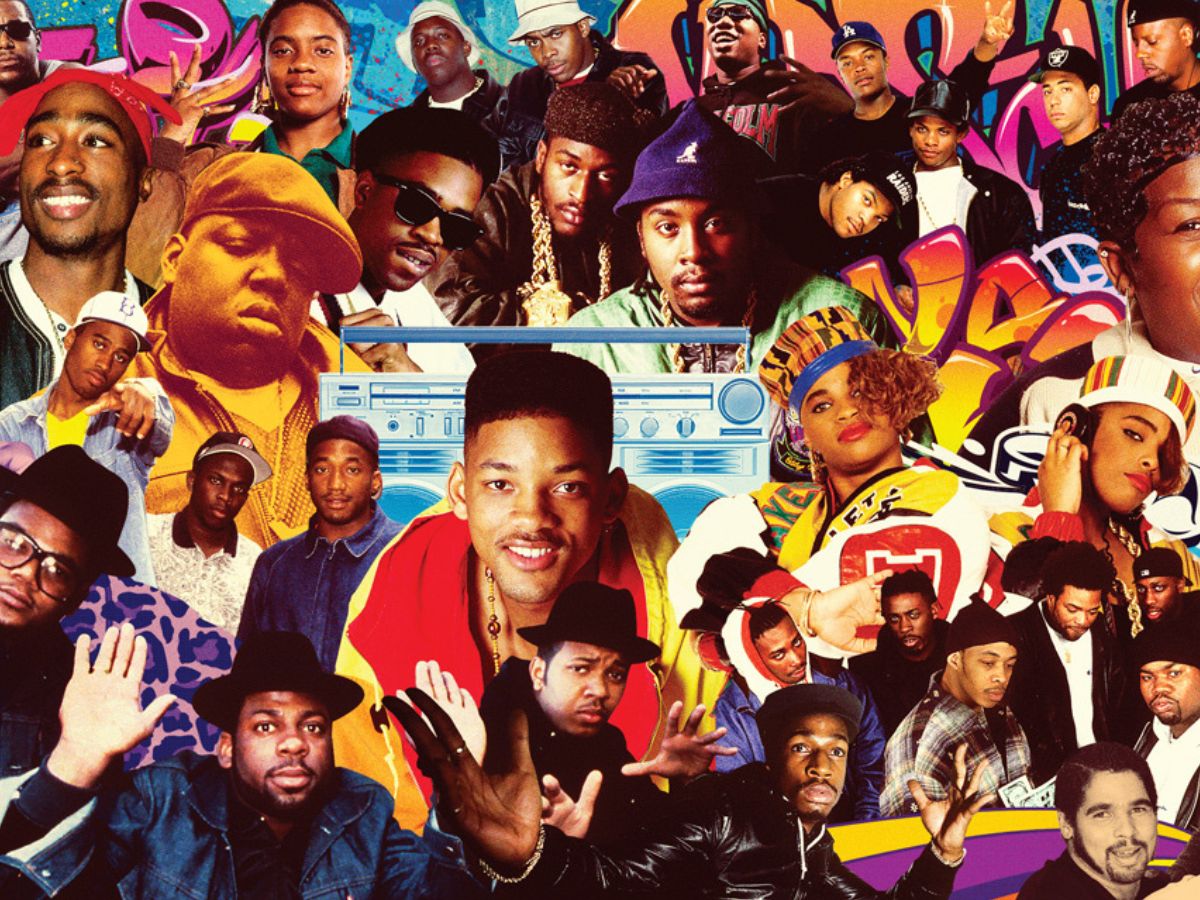

Hip Hop
Who Were The Pioneers Of Hip Hop
Modified: March 2, 2024
Discover the original innovators and trailblazers of the Hip Hop movement that revolutionized music and culture. Uncover the stories behind the pioneers who shaped the Hip Hop genre
(Many of the links in this article redirect to a specific reviewed product. Your purchase of these products through affiliate links helps to generate commission for AudioLover.com, at no extra cost. Learn more)
Table of Contents
- Introduction
- Kool Herc: The Father of Hip Hop
- Grandmaster Flash: The Turntable Magician
- Afrika Bambaataa: The Architect of Universal Zulu Nation
- The Sugarhill Gang: Bringing Hip Hop to the Mainstream
- Run-DMC: Elevating Hip Hop’s Crossover Appeal
- LL Cool J: Defining the Modern Hip Hop Artist
- Queen Latifah: Empowering Women in Hip Hop
- Public Enemy: Revolutionizing Hip Hop with Politics
- N.W.A: The Pioneers of Gangsta Rap
- Conclusion
Introduction
Hip Hop is a cultural movement that emerged in the 1970s in the Bronx, New York City. It encompasses various elements, including MCing (rapping), DJing, breakdancing, and graffiti art. What started as a form of expression for marginalized communities quickly turned into a global phenomenon, reshaping music, fashion, and the entertainment industry.
The pioneers of Hip Hop played a crucial role in shaping the genre, experimenting with new sounds, and pushing boundaries. They paved the way for future artists and left an indelible mark on the world of music. In this article, we will explore the contributions of some of the most influential pioneers of Hip Hop.
From Kool Herc, the father of Hip Hop, to N.W.A, the pioneers of gangsta rap, each of these artists brought something unique to the table, pushing the genre in new directions and leaving an indelible mark on music history. Explore their stories and the impact they had on Hip Hop as we know it today.
Kool Herc: The Father of Hip Hop
When discussing the pioneers of Hip Hop, it is impossible not to mention Kool Herc, often referred to as the father of Hip Hop. Born Clive Campbell in Jamaica and raised in the Bronx, Herc’s influence on the genre cannot be overstated.
In the 1970s, Herc developed a unique DJing style that would become the foundation of Hip Hop. He pioneered the technique of using two turntables to extend the instrumental break sections of songs, known as “breakbeats.” This technique, combined with his powerful sound system, created a hypnotic and energizing atmosphere that captivated audiences.
Herc’s legendary parties in the Bronx, known as “Hercules dances,” brought together diverse and vibrant communities. These parties became the birthplace of Hip Hop culture, providing a platform for MCs to showcase their lyrical skills and B-boys and B-girls to showcase their dance moves.
One of Herc’s most significant contributions was his emphasis on the role of the DJ. He elevated the DJ from a background figure to the forefront of the music, showcasing their skills and introducing the concept of “turntablism.” Herc’s impact was so profound that he laid the groundwork for future DJs and producers to experiment with sampling, remixing, and creating entirely new sounds.
Kool Herc’s influence extends beyond his musical contributions. He also played a pivotal role in fostering a sense of community and positivity within the emerging Hip Hop culture. He sought to create an environment that promoted peace, unity, love, and having fun. This ethos would become the foundation of the cultural movement.
The impact of Kool Herc’s innovations and his ability to bring people together cannot be understated. He set the stage and paved the way for the next generation of artists to continue pushing the boundaries of Hip Hop and leaving their mark on the world.
Grandmaster Flash: The Turntable Magician
Continuing our exploration of the pioneers of Hip Hop, we now turn our attention to Grandmaster Flash, a true master of the turntables. Born Joseph Saddler in Barbados and raised in the Bronx, Grandmaster Flash revolutionized DJing and paved the way for the art of turntablism.
Grandmaster Flash’s innovation lay in his meticulous approach to DJing. He perfected the technique of “cutting” and “scratching” vinyl records, creating rhythmic patterns and sound effects that added a dynamic and captivating element to his performances. His dexterity and precision on the turntables were unmatched, earning him the title of “The Turntable Magician.”
One of Grandmaster Flash’s groundbreaking inventions was the “quick mix theory.” He realized that by isolating and repeating the drum breaks, he could create extended dance sections that kept the crowd engaged and energized. He meticulously studied the structure of songs, identifying the most impactful moments to manipulate and loop, thus inventing the concept of looping in DJing.
Grandmaster Flash’s technical prowess and showmanship elevated DJing from a background role to a center stage spectacle. He incorporated theatrics into his sets, using props such as multiple turntables and headphones to showcase his skills. He also developed the concept of “backspinning,” quickly rewinding a record to replay a certain section, adding another layer of excitement to his performances.
Aside from his technical innovations, Grandmaster Flash and his group, The Furious Five, also played a significant role in the development of socially conscious and narrative-driven rap. Their seminal 1982 hit, “The Message,” addressed the struggles and realities of inner-city life, marking a shift in Hip Hop’s lyrical content and introducing socio-political issues into the genre.
Grandmaster Flash’s influence on DJing and Hip Hop as a whole cannot be overstated. His innovations laid the foundation for turntablism as an art form and opened up new possibilities for DJs and producers worldwide. His technical prowess, showmanship, and dedication to pushing the boundaries of what was possible on the turntables continue to inspire and influence generations of artists.
Afrika Bambaataa: The Architect of Universal Zulu Nation
Afrika Bambaataa, born Kevin Donovan, is widely regarded as one of the founding fathers of Hip Hop. His contributions extend beyond music, as he played a pivotal role in shaping the cultural and social aspects of the genre. Bambaataa is credited with creating the Universal Zulu Nation, a collective that aimed to promote peace, unity, and social change through Hip Hop.
Bambaataa’s musical style was eclectic, drawing inspiration from various genres such as funk, electro, and rock. He embraced the concept of sampling, using elements from different songs to create unique and innovative tracks. His groundbreaking 1982 single, “Planet Rock,” is considered a landmark in the development of Hip Hop, combining electronic sounds with heavy beats and empowering lyrics.
However, Bambaataa’s influence goes far beyond his music. He founded the Universal Zulu Nation in the 1970s, with the goal of creating a positive platform for young people in the Bronx and promoting unity among different communities. The Zulu Nation became a force for change, hosting events, seminars, and workshops that focused on education, self-improvement, and the importance of cultural heritage.
Under Bambaataa’s leadership, the Universal Zulu Nation became an international movement, spreading the principles of peace, love, unity, and having fun across the globe. Bambaataa emphasized the importance of community building and collaboration, encouraging artists to use their creativity to address social issues and promote positive change.
Bambaataa’s role in the early days of Hip Hop cannot be underestimated. He provided a platform for artists to express themselves and cultivated an environment that valued creativity, inclusivity, and social consciousness. His work with the Universal Zulu Nation laid the foundation for Hip Hop’s transformation from a local subculture to a global phenomenon.
Today, Afrika Bambaataa’s legacy lives on in the countless artists, activists, and cultural leaders who have been influenced by his vision. His commitment to using Hip Hop as a tool for empowerment and social change continues to inspire and shape the genre to this day.
The Sugarhill Gang: Bringing Hip Hop to the Mainstream
In the late 1970s, Hip Hop was still primarily an underground phenomenon, confined to block parties, local clubs, and street corners. However, all that changed with the arrival of The Sugarhill Gang, a group that would go on to release one of the most influential tracks in the history of Hip Hop – “Rapper’s Delight.”
Composed of Big Bank Hank, Wonder Mike, and Master Gee, The Sugarhill Gang was formed by Sylvia Robinson, the founder of Sugar Hill Records. In 1979, the group released “Rapper’s Delight,” a groundbreaking song that brought Hip Hop to the mainstream and set the stage for its global domination.
“Rapper’s Delight” was the first Hip Hop track to achieve widespread commercial success, reaching the top 40 on the Billboard Hot 100 chart and selling millions of copies worldwide. The infectious beat, catchy lyrics, and party vibe of the song resonated with listeners and introduced them to a new genre of music.
The success of “Rapper’s Delight” opened the floodgates for the mainstream acceptance of Hip Hop. It showcased the potential of rap music as a commercially viable and culturally significant art form. The Sugarhill Gang’s impact extended beyond their own music, as their success paved the way for other Hip Hop artists to gain exposure and recognition.
Despite their initial breakthrough, The Sugarhill Gang faced challenges and controversies within the industry. They struggled to replicate the commercial success of “Rapper’s Delight” with subsequent releases and faced accusations of not writing their own lyrics. However, their contribution to bringing Hip Hop to the mainstream remains undeniable.
Today, “Rapper’s Delight” is considered an iconic track that carries a significant cultural legacy. It is remembered as a pivotal moment in Hip Hop history, marking the genre’s entrance into the mainstream consciousness and laying the foundation for its continuous growth and evolution.
The Sugarhill Gang’s impact on the popularity and acceptance of Hip Hop cannot be overstated. They played a vital role in breaking down barriers and opening doors for future artists, ensuring that Hip Hop would become a force to be reckoned with in the music industry.
Run-DMC: Elevating Hip Hop’s Crossover Appeal
When discussing the pioneers of Hip Hop, it is impossible to overlook Run-DMC, a group that revolutionized the genre and brought it to new heights. Consisting of Joseph “Run” Simmons, Darryl “DMC” McDaniels, and Jason “Jam Master Jay” Mizell, Run-DMC changed the game with their hard-hitting beats, unique fashion sense, and groundbreaking collaborations.
One of Run-DMC’s most significant contributions was their ability to bridge the gap between Hip Hop and rock music. In 1986, they released a groundbreaking collaboration with rock legends Aerosmith, titled “Walk This Way.” This iconic track fused rap with rock, introducing Hip Hop to a broader audience and cementing Run-DMC’s place in music history.
“Walk This Way” not only became a massive hit but also shattered barriers and created a blueprint for future collaborations between different genres. The song’s success opened doors for other Hip Hop artists to work with rock musicians, paving the way for the crossover appeal that is now a staple of the music industry.
In addition to their collaboration with Aerosmith, Run-DMC’s impact can be seen in their fashion choices. The group’s trademark look, with their fedora hats, Adidas tracksuits, and unlaced sneakers, became iconic and influenced an entire generation. Their fashion sense, combining elements of streetwear and luxury brands, established a new standard for Hip Hop style that resonated with fans worldwide.
Run-DMC’s success also extended to their lyrical content. Unlike many of their contemporaries, they focused on expressing relatable stories and experiences, addressing social issues such as racism, poverty, and their own personal struggles. Their raw and honest lyrics resonated with audiences, making them one of the most influential rap groups of all time.
Furthermore, Run-DMC’s impact on the business side of music cannot be ignored. They were the first rap group to sign a major endorsement deal with a corporation, securing a groundbreaking partnership with Adidas. This endorsement not only elevated their status but also legitimized Hip Hop as a lucrative market for corporate sponsorships.
Run-DMC’s influence on Hip Hop’s crossover appeal, fashion, and business ventures transformed the genre from a niche movement into a cultural phenomenon. Their fearless collaborations, unique style, and socially conscious lyrics continue to inspire artists across genres and generations.
Today, Run-DMC’s legacy as one of the pioneers of Hip Hop remains as strong as ever. Their innovative approach to music and boundary-pushing contributions have left an indelible mark on the genre, shaping its trajectory and ensuring its enduring popularity.
LL Cool J: Defining the Modern Hip Hop Artist
When it comes to defining the modern Hip Hop artist, few have had as significant an impact as LL Cool J. Born James Todd Smith, LL Cool J burst onto the scene in the 1980s and quickly became a trailblazer in the genre, leaving an indelible mark on the music industry as a whole.
LL Cool J’s contribution to the world of Hip Hop can be seen in his innovative approach to rap. He brought a new level of charisma and lyricism to the genre, with his smooth delivery, clever wordplay, and confident stage presence. His ability to create catchy hooks and memorable verses set a new standard for what it meant to be a successful MC.
One of LL Cool J’s groundbreaking achievements was his crossover appeal. Alongside his rap career, he successfully broke into mainstream media, starring in films, television shows, and commercials. This ability to move seamlessly between music and acting paved the way for future artists to explore multiple creative avenues and solidify their status as cultural icons.
LL Cool J’s impact on the fashion industry was equally significant. He popularized the trend of wearing Kangol hats, single hoop earrings, and the concept of “licking his lips,” which became both his signature and a fashion statement. His sense of style and swagger influenced a generation of fans and artists alike.
Beyond his musical and fashion influence, LL Cool J is also known for his longevity in the music industry. With over three decades of active involvement in the industry, he has consistently adapted to the changing landscape of Hip Hop, reinventing himself while staying true to his unique style. His ability to stay relevant over the years is a testament to his talent and adaptability.
In addition to his impact on the music and entertainment industry, LL Cool J has also been a philanthropist and advocate for various causes. He has supported educational initiatives, mentored aspiring artists, and used his platform to address social issues affecting communities.
LL Cool J’s contributions to Hip Hop go far beyond his iconic status as a rapper. He has left an enduring legacy as a trailblazer, setting the stage for the modern Hip Hop artist who is not only talented on the mic but also versatile in their pursuits and influential outside of the music industry.
Today, LL Cool J’s influence can still be felt in the work of countless artists who continue to draw inspiration from his style, skill, and versatility. His contributions to Hip Hop have earned him a well-deserved place among the genre’s legends, solidifying his status as one of the pioneers who defined the modern Hip Hop artist.
Queen Latifah: Empowering Women in Hip Hop
Queen Latifah, born Dana Owens, is a true pioneer in the world of Hip Hop. Not only known for her exceptional talent as a rapper and singer, but she has also been a driving force in empowering women within the genre. Throughout her career, Queen Latifah has used her music and platform to tackle social issues, promote self-acceptance, and break down barriers for female artists.
One of Queen Latifah’s most important contributions to Hip Hop was her unwavering commitment to female empowerment. Her lyrics often addressed topics such as gender equality, self-love, and speaking out against domestic violence. Her iconic 1989 single, “Ladies First,” featuring Monie Love, celebrated women’s strength and showcased their skills in a male-dominated industry.
Queen Latifah’s impact extended beyond music. She became a role model for young girls everywhere, showing them that they too could succeed in a traditionally male-dominated field. Her confidence, charisma, and message of self-empowerment resonated with audiences, inspiring a new generation of female artists to embrace their talent and voice.
In addition to her music, Queen Latifah ventured into acting, becoming a prominent figure in the film and television industry. Her breakout role in the film “Set It Off” showcased her versatility as an actress, and she went on to receive critical acclaim for her performances in movies like “Chicago” and “The Queen Latifah Show.”
As an actress, Queen Latifah continued to champion strong female characters, often portraying women who defied societal norms and challenged expectations. Her on-screen presence further solidified her status as an advocate for women’s empowerment and diversity in the entertainment industry.
Queen Latifah’s influence reaches beyond her music and acting careers. She has been an advocate and spokesperson for various causes, using her platform to promote HIV/AIDS awareness, LGBTQ+ rights, and women’s health initiatives.
Today, Queen Latifah’s impact on Hip Hop and the empowerment of women within the genre cannot be overlooked. Her contributions have laid the foundation for the recognition and success of countless female artists who have followed in her footsteps.
Queen Latifah’s legacy is a testament to her resilience, creativity, and unwavering commitment to empowering women in Hip Hop. Her contributions have shaped the landscape of the genre and paved the way for a more diverse and inclusive industry.
Queen Latifah serves as an inspiration for future generations, reminding us all of the power of authenticity, self-expression, and the importance of using one’s platform to create positive change.
Public Enemy: Revolutionizing Hip Hop with Politics
When it comes to the intersection of Hip Hop and politics, few groups have had as profound an impact as Public Enemy. Formed in the 1980s, Public Enemy, consisting of Chuck D, Flavor Flav, and DJ Terminator X, emerged as a trailblazing force that revolutionized Hip Hop through their politically charged lyrics and activism.
Public Enemy’s music served as a powerful platform for addressing social and political issues. Their lyrics delved into themes of racial inequality, police brutality, and systemic injustice, giving voice to the frustrations and experiences of marginalized communities. Through their music, Public Enemy sought to challenge the status quo and ignite conversations about the complex issues affecting society.
One of Public Enemy’s most influential albums, “It Takes a Nation of Millions to Hold Us Back,” released in 1988, is regarded as a landmark in Hip Hop history. The album showcased their aggressive, unapologetic lyricism and powerful production techniques, blending dense sampling with politically charged messages. Tracks like “Fight the Power” became anthems for resistance and a call to action for listeners.
In addition to their music, Public Enemy’s activism played a crucial role in inspiring change. They were vocal advocates for social justice and challenged the existing power structures. Public Enemy drew attention to issues such as racial profiling, police misconduct, and economic inequality, using their platform and influence to raise awareness and inspire meaningful dialogue.
Public Enemy’s impact extended beyond the music industry. They collaborated with numerous civil rights organizations and participated in protests and demonstrations. Their commitment to social change was evident in their actions, and their music became a rally cry for activists and those seeking to challenge the status quo.
Public Enemy’s confrontational and fearless approach to blending politics with Hip Hop was not without controversy. They faced backlash and criticism from those who believed that music should stay apolitical. However, Public Enemy’s unwavering commitment to speaking truth to power solidified their status as trailblazers and inspired a new generation of politically conscious artists.
The influence of Public Enemy can still be felt in the music and activism of today. Their willingness to address uncomfortable topics, challenge norms, and use their platform to promote social change has left an indelible mark on Hip Hop and beyond. Their legacy serves as a reminder of the power of music to inspire and provoke conversations that can lead to meaningful transformation.
Public Enemy’s dedication to merging Hip Hop and politics has forever changed the landscape of the genre. They proved that music could be a vehicle for social commentary, activism, and empowerment, paving the way for future artists to use their art as a tool for creating positive change in the world.
N.W.A: The Pioneers of Gangsta Rap
When discussing the pioneers of gangsta rap, one group stands out: N.W.A. Comprised of Eazy-E, Ice Cube, Dr. Dre, MC Ren, and DJ Yella, N.W.A revolutionized Hip Hop in the late 1980s and early 1990s. Their raw and unfiltered lyrics provided a gritty and unapologetic glimpse into the realities of inner-city life, solidifying their status as the pioneers of gangsta rap.
N.W.A’s debut album, “Straight Outta Compton,” released in 1988, propelled them into the spotlight. The album’s title track became an instant anthem, showcasing their aggressive and provocative style. N.W.A’s lyrics reflected the harsh realities of their surroundings, addressing police brutality, racial profiling, and social inequality.
One of N.W.A’s defining moments came with their controversial song “F**k Tha Police.” The track was a scathing critique of police brutality and systemic racism, sparking widespread controversy and drawing the attention of authorities. The song’s impact transcended the music industry, becoming an anthem for communities affected by racial profiling and sparking conversations about police brutality.
Beyond their confrontational lyrics, N.W.A’s impact extended to their persona and style. They embraced a gangster image, dressed in black attire and adorned themselves with gold chains, epitomizing the street culture that shaped their music. Their edgy and unapologetic image resonated with audiences, influencing a generation of artists and solidifying their status as icons of gangsta rap.
N.W.A’s influence went far beyond their music. They played a pivotal role in the West Coast Hip Hop movement, helping to establish Los Angeles as a significant force in the genre. Their success opened doors for other West Coast artists, paving the way for the emergence of artists like Snoop Dogg, Tupac Shakur, and Kendrick Lamar.
Despite facing criticism for their explicit lyrics and controversial subject matter, N.W.A’s impact on Hip Hop and popular culture cannot be denied. They unapologetically expressed the frustration and anger of a generation, shining a light on the injustices faced by marginalized communities.
The legacy of N.W.A is felt in the ongoing dialogue surrounding issues of race, police brutality, and social injustice. Their willingness to confront uncomfortable topics and push boundaries sparked conversations that continue to this day.
N.W.A’s pioneering work has paved the way for future artists to use their music as a platform for social commentary. Their influence on the genre and their unapologetic depiction of the realities of inner-city life have left an indelible mark, cementing their status as the pioneers of gangsta rap.
Conclusion
Hip Hop is a genre that has transcended boundaries, evolving from its humble beginnings in the streets of the Bronx to becoming a global movement. The pioneers of Hip Hop played a crucial role in shaping the genre, pushing boundaries, and defying societal norms. Their contributions not only transformed music but also sparked social and cultural movements.
From Kool Herc, the father of Hip Hop, who revolutionized DJing, to Grandmaster Flash, the turntable magician who brought a new level of skill to the art form, each pioneer set the stage for future artists to build upon their innovations. Afrika Bambaataa, the architect of Universal Zulu Nation, emphasized the importance of unity and community, laying the foundation for the positive values that define Hip Hop culture.
The Sugarhill Gang and Run-DMC were instrumental in bringing Hip Hop to the mainstream, introducing it to audiences worldwide and breaking down barriers. They elevated the genre’s crossover appeal and proved that Hip Hop had the power to resonate with diverse audiences.
LL Cool J and Queen Latifah, along with Public Enemy, used their platforms to empower marginalized communities and advocate for change. They transformed the perception of what it meant to be a Hip Hop artist, breaking stereotypes and challenging societal norms.
Lastly, N.W.A pioneered gangsta rap, using bold lyrics to shed light on the challenges faced by inner-city communities. They pushed boundaries and sparked conversations about social and racial injustice, leaving an indelible mark on the genre and popular culture.
The contributions of these pioneers and many others continue to shape the landscape of Hip Hop. Their innovations, activism, and artistry have paved the way for future generations of artists to express themselves and address important social issues through their music.
As Hip Hop evolves, it is essential to recognize and appreciate the foundations laid by these pioneers. Their resilience, creativity, and ability to inspire change have ensured that Hip Hop remains a powerful medium for self-expression, cultural exchange, and social transformation.
In conclusion, the pioneers of Hip Hop have left an enduring legacy that extends beyond music. They have defined the genre, influenced popular culture, and empowered communities. Their impact will continue to inspire and resonate with audiences for generations to come, ensuring that the spirit of Hip Hop lives on.


